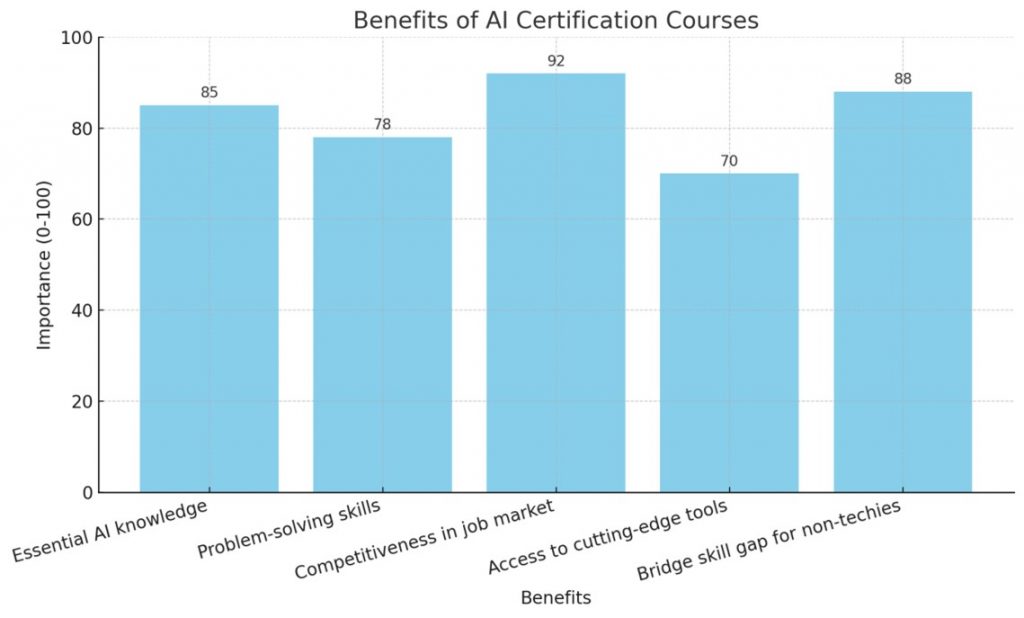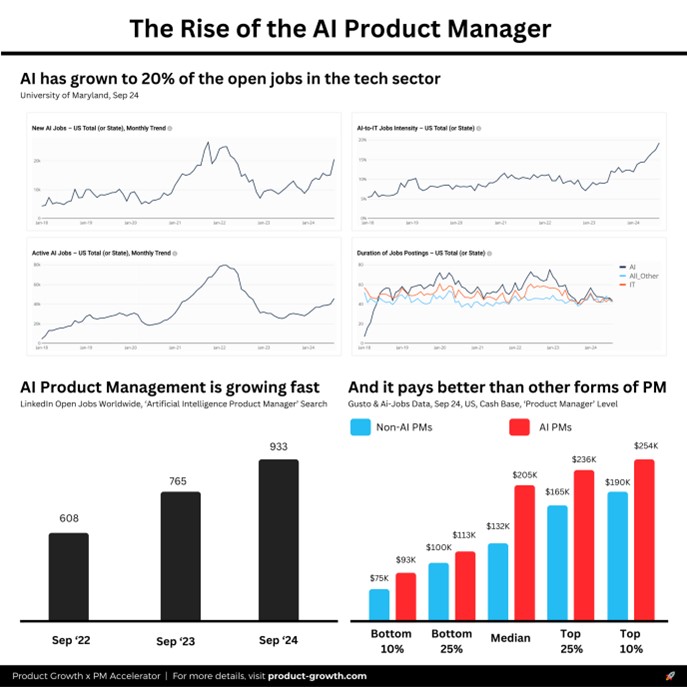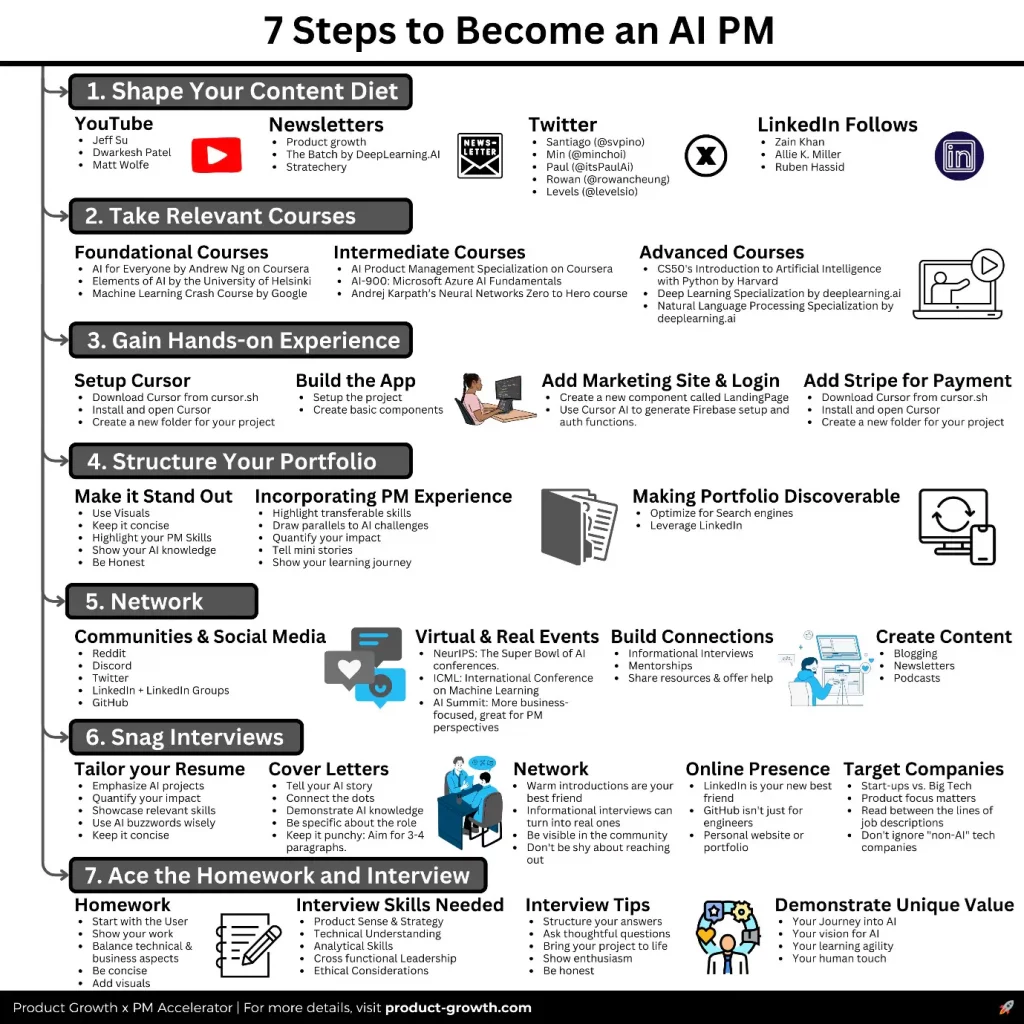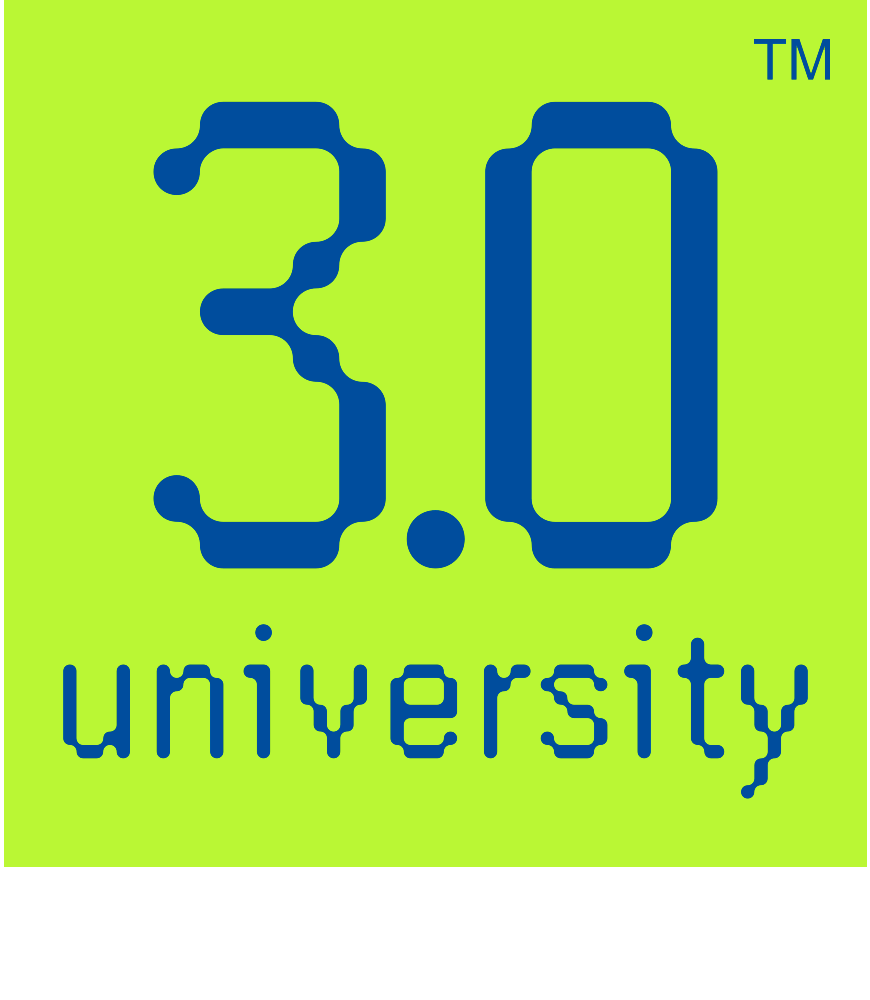
Top 10 AI Careers for Non-Techies
- Posted by 3.0 University
- Categories Artificial Intelligence
- Date March 18, 2025
- Comments 0 comment
AI Careers for Non-Techies
Artificial intelligence is shaking up industries in unpredictable ways, and non-tech professionals are increasingly eyeing a spot in this buzzing field.
More and more, it’s not just the veteran technologists; folks from all walks of life are diving in, proving you don’t need a computer science degree to get started.
AI opportunities in roles like AI Product Manager, data analyst, or even UX designer are cropping up everywhere—each one blending skills from project management, marketing, or just a keen sense of user needs with technological know-how.
If you’re starting and aren’t from a tech background, getting a grip on basic AI concepts is pretty important; luckily, resources like online certification courses from various educational outlets are widely available.
Most certainly, this varied assortment of career opportunities lays an incredible emphasis on, essentially, Non-technical AI roles the adaptability of AI, and estimates characteristically indicate a substantial increase in existing and obtainable jobs, prompting many to contemplate their potential to shape the future of technology.
Overview of Top AI Jobs for Non-techies or Non-Technical Professionals
Artificial intelligence is changing fast, and—generally speaking—even those without deep technical know-how now find plenty of room to get involved.
You see, roles like AI product managers, who link technology with what users need, and AI ethicists, who grapple with the moral side of using this tech, are cropping up in unexpected ways.
People from many walks of life can now join in on AI projects without having to learn every piece of code; it’s not just for tech buffs anymore.
In most cases, industry trends and job postings show that positions requiring AI skills are on the rise, clarifying it that the market is really shifting.
As one expert put it rather succinctly, “AI is not just for tech experts anymore. Non-technical professionals can leverage AI in various roles, such as AI ethicists, AI product managers, and AI business strategists.”
Going by the image below, one could easily fathom the growth being depicted in AI product management jobs is conspicuously evident that non-techies are playing a significant role in shaping our tech-driven future.
Rank | Job Title | Median Salary | Growth Rate | Required Education |
1 | AI Ethics Consultant | $110,000 | 25% | Bachelor’s |
2 | AI Project Manager | $120,000 | 20% | Bachelor’s |
3 | AI Business Analyst | $95,000 | 18% | Bachelor’s |
4 | AI Marketing Specialist | $85,000 | 22% | Bachelor’s |
5 | AI Content Strategist | $80,000 | 15% | Bachelor’s |
6 | AI User Experience Designer | $100,000 | 17% | Bachelor’s |
7 | AI Policy Analyst | $90,000 | 16% | Master’s |
8 | AI Training Specialist | $75,000 | 14% | Bachelor’s |
9 | AI Sales Representative | $85,000 | 19% | Bachelor’s |
10 | AI Legal Consultant | $115,000 | 12% | J.D. |
Top 10 AI Careers for Non-Technical Professionals
Skills and Qualifications Needed for Non-Tech AI Roles
AI keeps evolving rapidly! People from all backgrounds constantly seek fresh opportunities in this ever-changing field.
Jobs are not circumscribed to coding—like handling ethical issues or managing products—and they, for the most part, need an amalgam of skills that go well beyond technical know-how.
Individuals are required to possess agile problem-solving skills, as this approach enables them to navigate the complex challenges posed by AI and devise solutions that prioritize user needs.
Effective communication is crucial; it involves exchanging ideas and collaborating with tech teams and other partners in a genuine, practical manner.
A small amount of leadership, particularly when guiding diverse teams through the intricacies of AI projects, significantly contributes to success.
In most cases, getting comfortable with basic AI ideas can help—just look at advice from the guide 7 Steps to Become an AI PM, which highlights building a portfolio and networking to raise your career chances.
Overall, when delving into technical details, it’s often the softer, human skills that truly transform the game for non-techies in the AI realm.
Skill | Importance (1-10) | Typical Qualification | Estimated Learning Time (months) |
Data Analysis | 9 | Statistics or Business Analytics Course | 3 |
Project Management | 8 | PMP Certification | 6 |
AI Ethics | 7 | AI Ethics Certificate | 2 |
Business Strategy | 8 | MBA | 24 |
Communication | 9 | Communication Workshop | 1 |
Top Skills for Non-Tech AI Roles
The Significance of AI Certification Courses for Career Development
The job scenario today is quickly evolving, necessitating the acquisition of new skills, particularly in areas impacted by AI.
For all those aspirants just about to start or, inexorably, hope to make a mark of astounding ascent for themselves in the AI realm, certification classes can set them on the right path.
In essence. these courses aren’t just limited to cramming in technical details on AI tools and methods; they, as much, give a leg up on solving problems – and, in turn, this makes a big impression whether one is aiming for a tech-heavy role or something a bit different.
Earning a certificate shows employers you’re committed to both personal and career growth—it’s like a nod of approval. Plus, these programs often hook you up with the latest software and tools, which can seriously boost your qualifications.
The pursuit of AI careers has exponentially increased by all those aspirants who comprise no traditional tech background are increasingly pursuing AI careers, and enrolling in a certification course at a reputable institution, such as a 3.0 university, could potentially bridge the knowledge gap between current skills and the demands of the emerging AI job market.

This bar chart above depicts the asvantages of AI certification courses for career advancement, detailing the relative importance of various advantages on a scale of 0 to 100.
Each bar represents a different benefit, with “Competitiveness in job market” ranked as the most significant, followed closely by “Bridge skill gap for non-techies” and “Essential AI knowledge”. The chart effectively highlights how these courses enhance various aspects of a professional’s profile.
Conclusion
As we conclude our exploration of AI careers for individuals outside the tech sector, it becomes evident that the field offers a wide range of opportunities that extend far beyond traditional tech limitations.
Roles like AI Product Manager keep popping up, hinting that everyday skills are getting a lot of credit when it comes to shaping and applying AI in real-life projects.
The compelling data presented in the image, for instance, point to a sharp surge in AI job postings—and yes, those salaries are pretty attractive too.
Then there’s the roadmap in the image, which suggests that with a bit of smart planning and targeted skill development, newcomers can find their way into this lively arena without too much fuss.
In most cases, people armed with the right know-how and a dash of adaptability can not only step into but truly flourish in a career zone where AI meshes with various industries—proving that innovation isn’t reserved solely for the tech-savvy.
All in all, this ongoing growth really makes chasing an AI career a worthwhile venture for non-techies.

Image1. Growth of AI Product Management Careers in the Tech Sector
Now, it’s a lot easier to find AI certification course at 3.0 university, so enrol now!

You may also like

AI-Driven Cyber Threats

AI Education and Job Market in 2025

